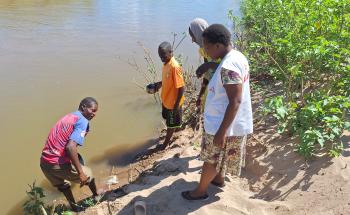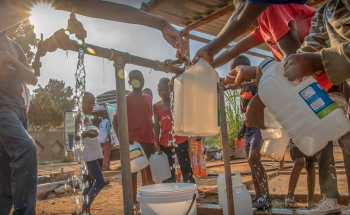“I started vomiting in the wee hours of one Monday morning and never suspected that it was cholera,” says 31-year-old Winfilda Shonhai from Buhera district in Manicaland province. Her family was hit by cholera, and nine family members were admitted to Zangama clinic in Buhera, where cholera has been ravaging the community since the second wave of cholera in August this year.
Despite her having heard of cholera, Winfilda never imagined the disease infecting the whole family.
At first, the family members were reluctant to visit the clinic, but when the situation deteriorated, after continuous vomiting and watery diarrhoea, Winfilda’s husband sought help and rushed the family to Zangama clinic, 20 kilometres away from their village. Upon arrival at the clinic, her husband was also admitted as he started showing signs and symptoms of cholera. The whole family was admitted to the Cholera Treatment Centre (CTC) set up by Doctors Without Borders (MSF) at Zangama Clinic, with each member at a different stage of recovery.
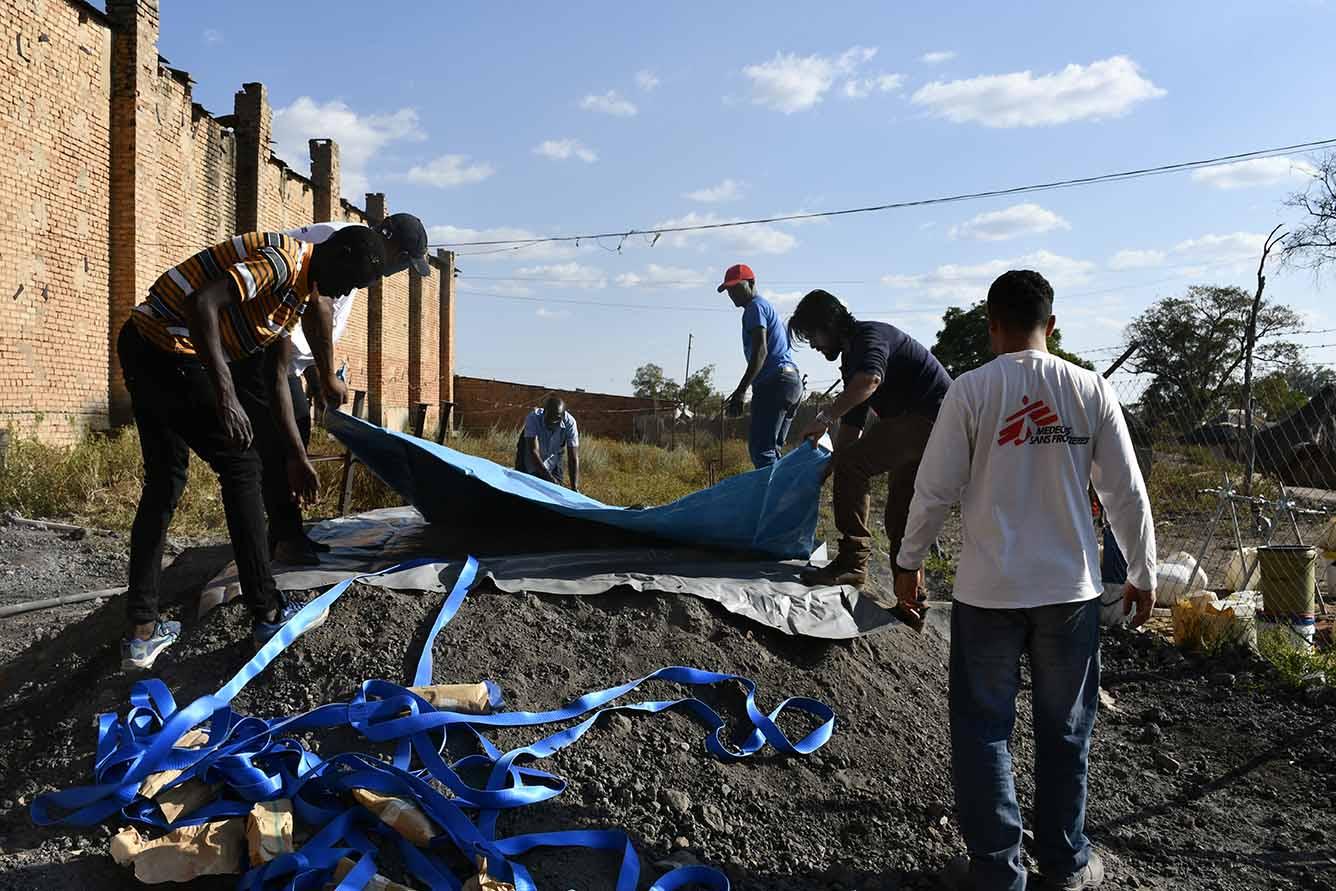
I was the first one to recover and I am happy my family members are recovering. We almost died, the pain was surreal, but the care and support we got from the nurses resuscitated usRecovered cholera patient Winfilda Shonhai
“ I suspect we got cholera from one of the family members who had visited another village,” says Winfilda. “To get the whole family infected was the worst nightmare .”
“I was the first one to recover and I am happy my family members are recovering. We almost died, the pain was surreal, but the care and support we got from the nurses resuscitated us,” narrates Winfilda.
Winfilda is one of 1,127 confirmed cholera cases in Zimbabwe since February 2023. As of 7 November 2023, there were 6,685 cholera cases recorded in Zimbabwe, 6,406 recoveries, 48 confirmed deaths, and 136 suspected deaths across the country.
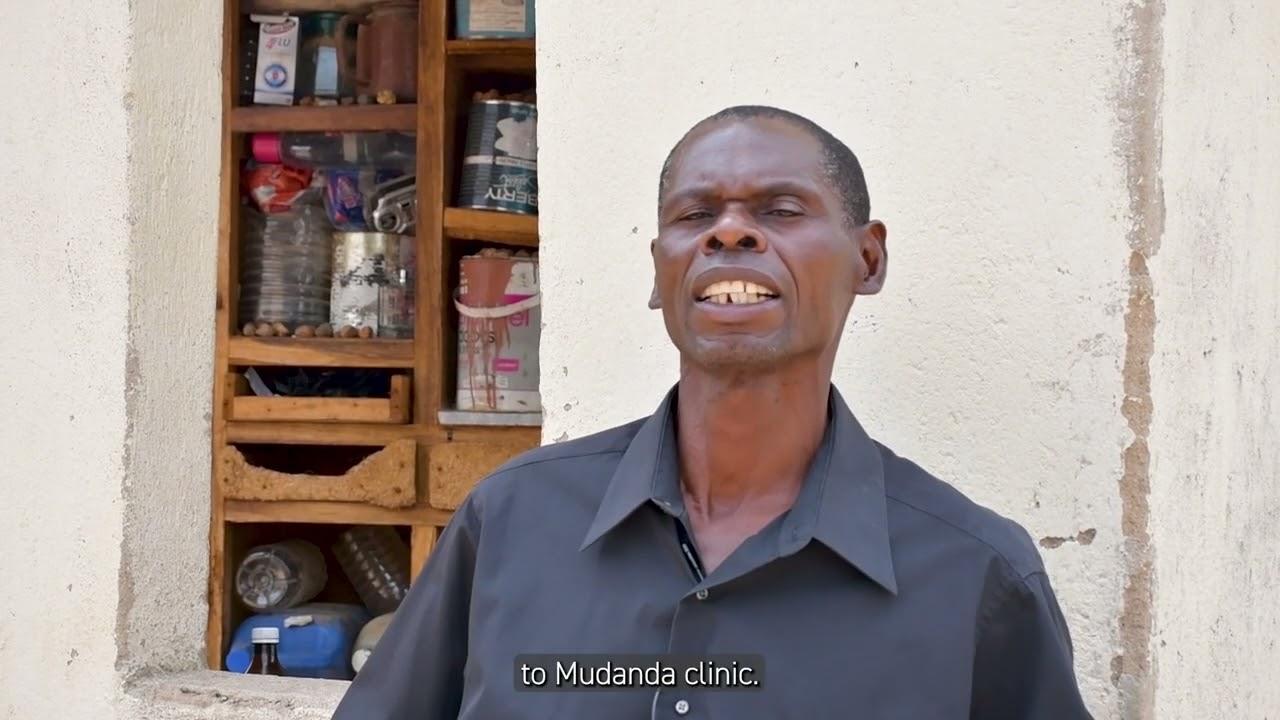
Recovered Cholera Patient: Gerald Njanike
MSF teams are now supporting MoHCC in the fight against cholera in the Buhera district, where the main drivers of the disease have been a lack of safe water and the use of river water, which is potentially contaminated.
“The MSF team in Buhera is providing technical support in proper construction and layout of the cholera treatment centres (CTCs), providing nursing mentorship at different clinics, logistical support, case management, strengthening infection prevention and control measures and risk communication and community engagement and health promotion” explains Kuziwa Kuwenyi, MSF Country Medical Representative.
So far, in Buhera, MSF has set up six cholera treatment centres and provided cholera beds at MoHCC clinics. MSF also donated basic medical supplies like ringer's lactate (used to treat dehydration and restore fluid balance in the body), oral rehydration solution (ORS) and cholera beds to MoHCC in Buhera.
The team is also strengthening health promotion activities to increase awareness of the hygiene measures for prevention and control of the disease.
“We are conducting awareness sessions about cholera for all people in the district especially where there are gatherings and also targeting the Apostolic sect members, who do not seek medical attention when infected with cholera”, says Onwell Nyekete, MSF Health Promotion and Risk Communication and Community Officer in Buhera.
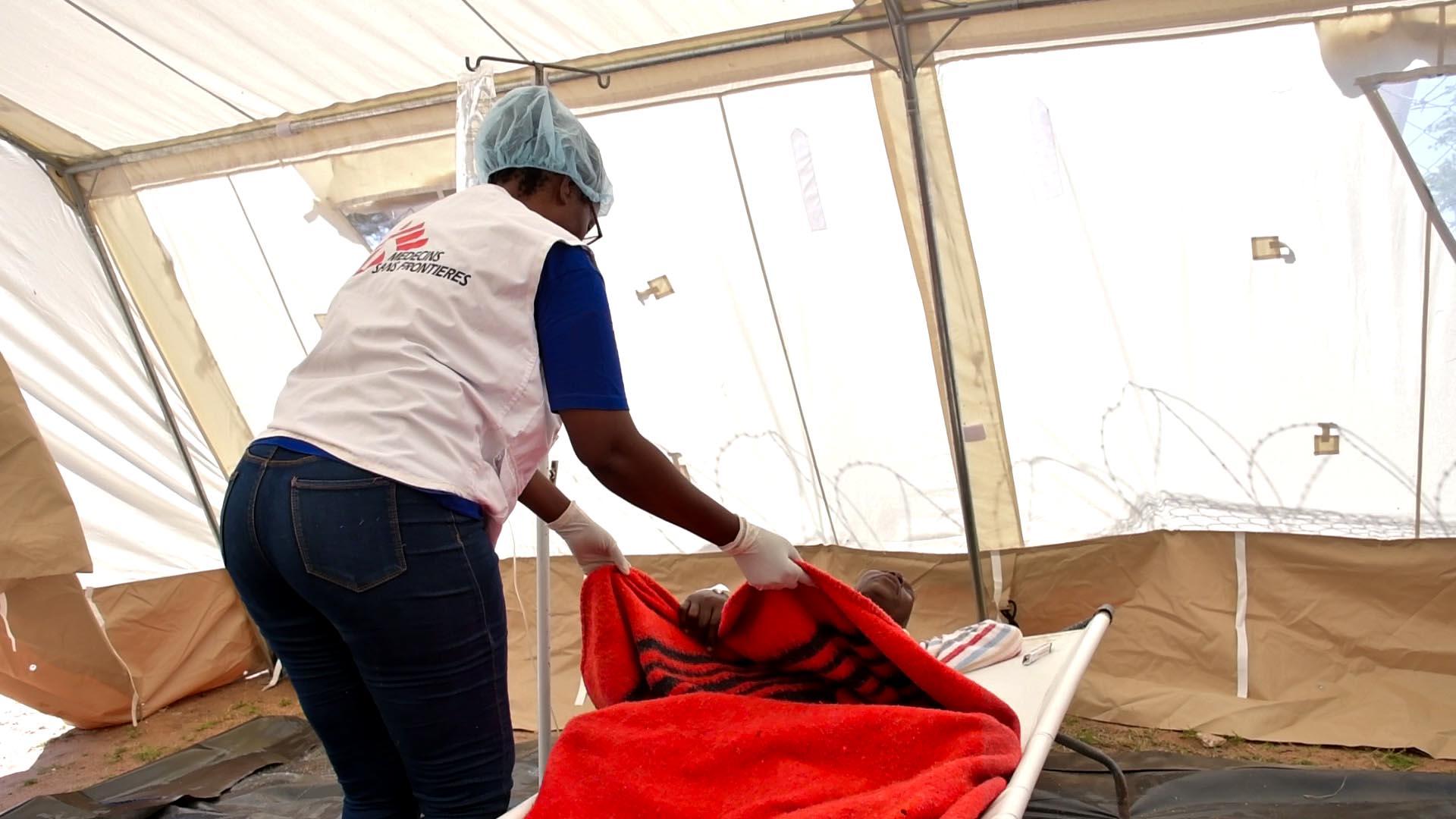
“The sessions cover important topics such as what cholera is, how it spreads, what the preventative measures are, and how to detect the symptoms so they can report it. This is crucial information that can help people take action if they suspect they, or someone they know, might have cholera.”
MSF has been working in different parts of the country since 2000, focusing mainly on HIV/ TB and Non-Communicable Diseases (NCDs). The organisation also provided emergency support during the 2008, and 2018 cholera outbreaks in Buhera and Harare, respectively.

